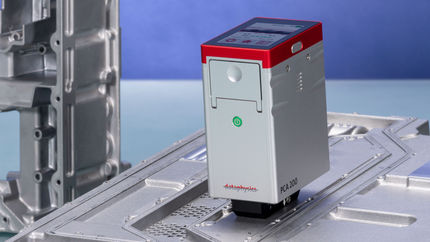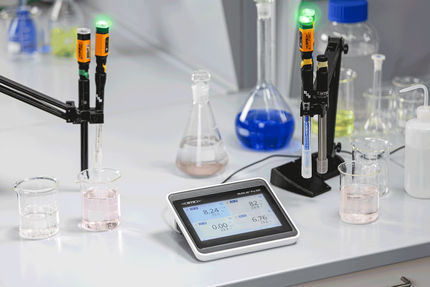To use all functions of this page, please activate cookies in your browser.
my.chemeurope.com
With an accout for my.chemeurope.com you can always see everything at a glance – and you can configure your own website and individual newsletter.
- My watch list
- My saved searches
- My saved topics
- My newsletter
Archer Daniels Midland
The Archer Daniels Midland Company (NYSE: ADM), is a conglomeration based in Decatur, Illinois. ADM operates more than 270 plants worldwide, where cereal grains and oilseeds are processed into numerous products used in food, beverage, nutraceutical, industrial and animal feed markets worldwide. ADM also provides agricultural storage and transportation services. Company divisions include: ADM Cocoa, ADM Corn Processing, ADM Food Additives, ADM Lecithin, ADM Milling, ADM Monoglycerides, ADM Vitamin E, ADM Protein Specialties, ADM Food Oils. The American River Transportation Company along with ADM Trucking, Inc are subsidiaries of ADM. ADM's revenues for fiscal 2007 (ending June 30 2007) were US $44 billion. Product highlight
ProductsTypical products include oils and meal from soybeans, cottonseed, sunflower seeds, canola, peanuts, flaxseed, and Diacylglycerol (DAG) oil, as well as corn germ, syrup, starch, glucose, dextrose, crystalline dextrose, High fructose corn syrup sweeteners, ethyl alcohol, and wheat flour. End uses are consumption by people and livestock, and fuel additives. Long known as a food and ingredients company, ADM has recently shifted increasing resources towards fuel production. According to Foodprocessing.com, a food industry trade publication, ADM nearly doubled capital spending in its 2007 budget to an estimated $1.12 billion. All of the increase is planned for bioenergy projects, with a particular focus on ethanol and biodiesel.[1] HistoryIn 1902, George A. Archer and John W. Daniels began a linseed crushing business. In 1923, Archer-Daniels Linseed Company acquired Midland Linseed Products Company, and the Archer Daniels Midland Company was formed. Every decade since its corporate inception, ADM has added at least one major profit center to its agribusiness: milling, processing, specialty feed ingredients, specialty food ingredients, cocoa, nutrition, and more. In September 1999, executive Marty Andreas announced that, under pressure from the European agricultural industry, they were going to separate crops into genetically modified and non-genetically modified groups to give their customers a choice. Previously the company had not disclosed their crop sources. In May 2006, Patricia A. Woertz became CEO. Formerly of Chevron, she is expected to focus on developing ethanol and biofuels. In February of 2007 Ms. Woertz was elected Chairman of the Board at ADM. Price fixingIn 1996, ADM was the subject of a lysine price fixing investigation by the U.S. Justice Department. Senior ADM executives were indicted on criminal charges for engaging in price-fixing within the international lysine market. Three of ADM's top officials, including vice chairman Michael Andreas, were eventually sentenced to federal prison in 1999. Moreover, the company was fined $100 million, the largest antitrust fine in U.S. history at the time(1997).[2] In addition, according to ADM's 2005 annual report a settlement was reached under which ADM paid $400 million in 2005 to settle a class action antitrust suit.[3] Using the investigation as an example, Ronald W. Cotterill of the Food Marketing Policy Center at the University of Connecticut shows that 100 percent or more of overcharges resulting from price fixing are passed through to consumers.[4] Howard Buffett, son of billionaire Warren Buffett, served at one time as an ADM vice president and as a member of the Board of Directors. However, Buffett resigned as VP in the wake of the FBI price fixing investigation.[5] In addition, he has since resigned his seat on the board.[citation needed] Environmental recordArcher Daniels Midland has been the subject of several major federal lawsuits related to air pollution. In 2001 the company agreed to pay a $1.46 million fine for violating federal and Illinois clean-air regulations at its Decatur feed plant and to spend $1.6 million to reduce air pollution there. [6] Based on year 2000 data,[7] ADM was listed as the tenth largest air polluter in the USA by the Political Economy Research Institute.[8] In 2003, ADM settled federal air pollution complaints related to the company's efforts to avoid New Source Review provisions of the Clean Air Act that require pollution control upgrades when a plant is modernized. The company paid $4.5 million in penalties and more than $6 million to support environmental projects. In addition, ADM agreed to eliminate more than 60,000 tons of emissions of carbon monoxide, particulate matter, organic volatile chemicals and other pollutants from 42 plants in 17 states at a cost of hundreds of millions of dollars.[9] Criticism of ADMADM's receipt of federal agribusiness subsidies have come under criticism. According to the Cato Institute, a libertarian think tank, "ADM has cost the American economy billions of dollars since 1980 and has indirectly cost Americans tens of billions of dollars in higher prices and higher taxes over that same period. At least 43 percent of ADM's annual profits are from products heavily subsidized or protected by the American government. Moreover, every $1 of profits earned by ADM's corn sweetener operation costs consumers $10, and every $1 of profits earned by its ethanol operation costs taxpayers $30."[10] ADM's lobbying and campaign contributions have encouraged the continuation of the United States federal sugar program (of trade barriers and price supports) by Congress, costing US consumers roughly $3 billion a year.[10] ADM also lobbied to create and perpetuate federal ethanol subsidies. Some commentators have concluded that the ADM experience demonstrates the need for campaign finance reform.[10] ADM advertises on national television, although it does not sell directly to consumers. According to the company, its "Resourceful by Nature" 2006 television advertising campaign is intended to demonstrate "...[the] relationship between ADM and the farmer — and its importance to the [US] economy and [US] way of life." In July 2005, the International Labor Rights Fund filed suit against the Nestle, Archer Daniels Midland, and Cargill companies in Federal District Court in Los Angeles on behalf of a class of Malian children who were trafficked from Mali into the Ivory Coast and forced to work twelve to fourteen hours a day with no pay, little food and sleep, and frequent beatings. The three children acting as class representative plaintiffs are proceeding anonymously, as John Does, because of feared retaliation by the farm owners where they worked. The complaint alleges their involvement in the trafficking, torture, and forced labor of children who cultivate and harvest cocoa beans which the companies import from Africa.[11] Archer Daniels Midland, along with Cracker Barrel and Nestle Purina Pet Care, achieved the lowest score (15 out of 100) of all rated Food and Beverage companies in the Human Rights Campaign's 2008 Corporate Equality Index, a measure of Gay and Lesbian workplace equlity.[12]. The company is now facing its first-ever markets campaign, as the environmental group Rainforest Action Network is pressing ADM to stop its expansion into tropical rainforests in Brazil and Southeast Asia to grow soy and palm oil for biofuels.[13] References
|
|||||||||||||||||||||||||
| This article is licensed under the GNU Free Documentation License. It uses material from the Wikipedia article "Archer_Daniels_Midland". A list of authors is available in Wikipedia. | |||||||||||||||||||||||||







